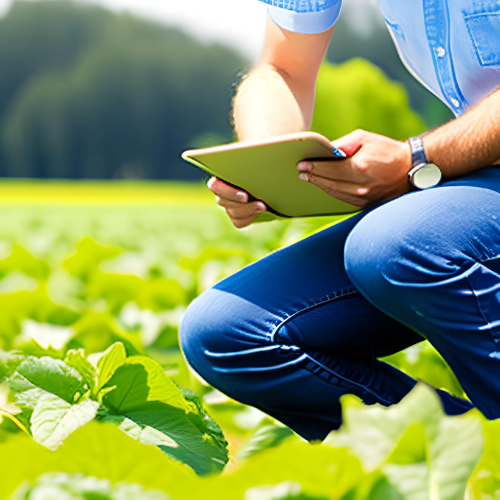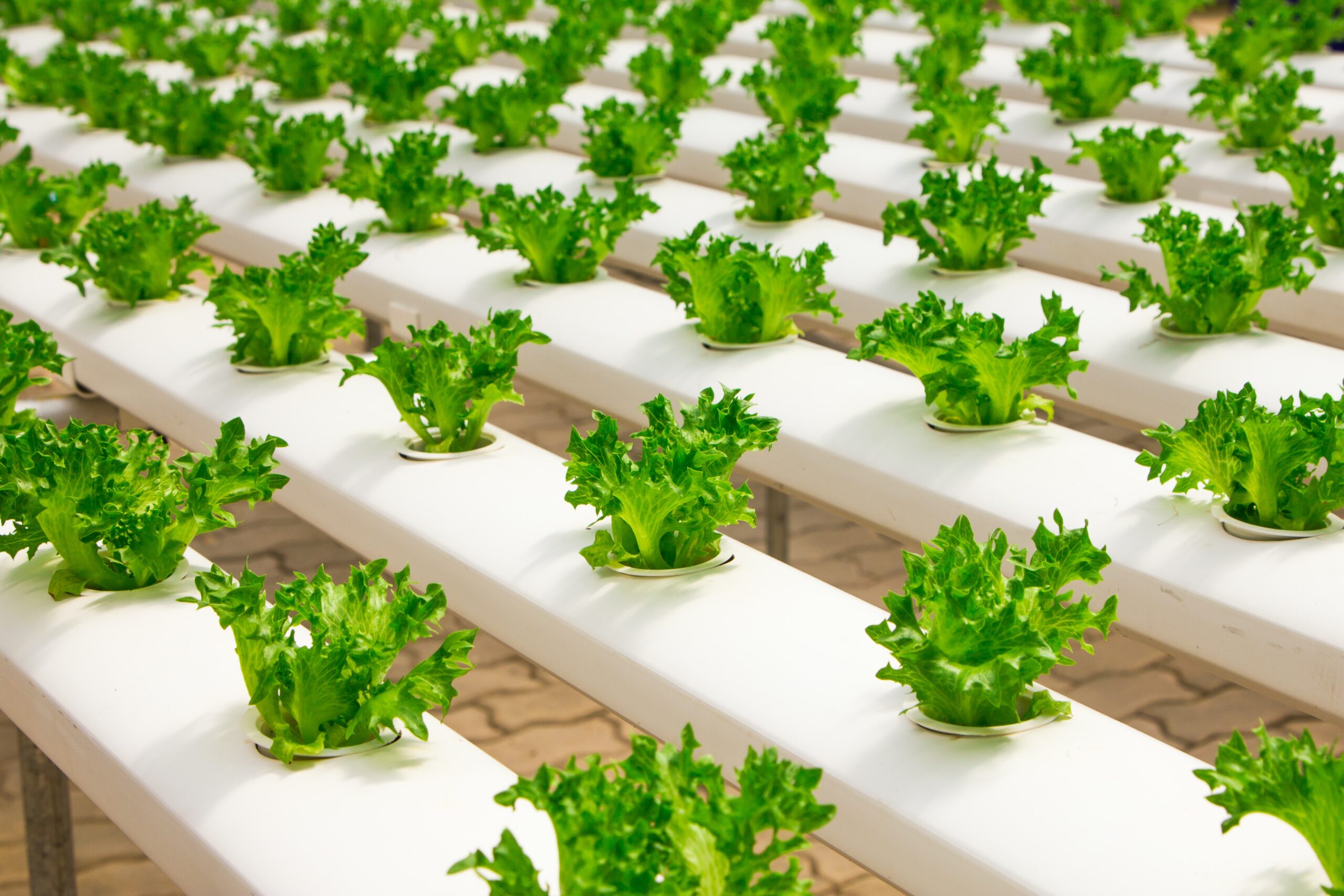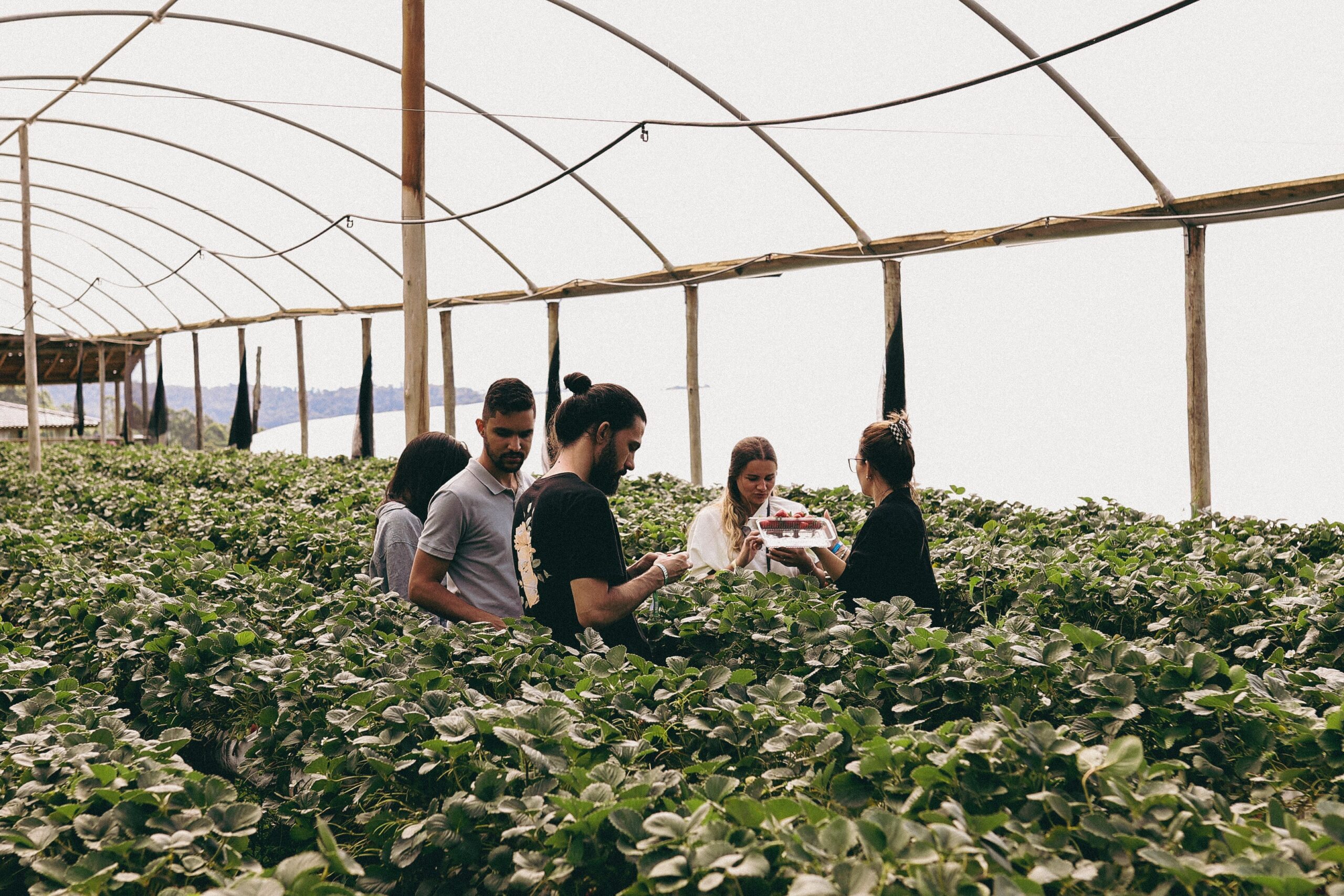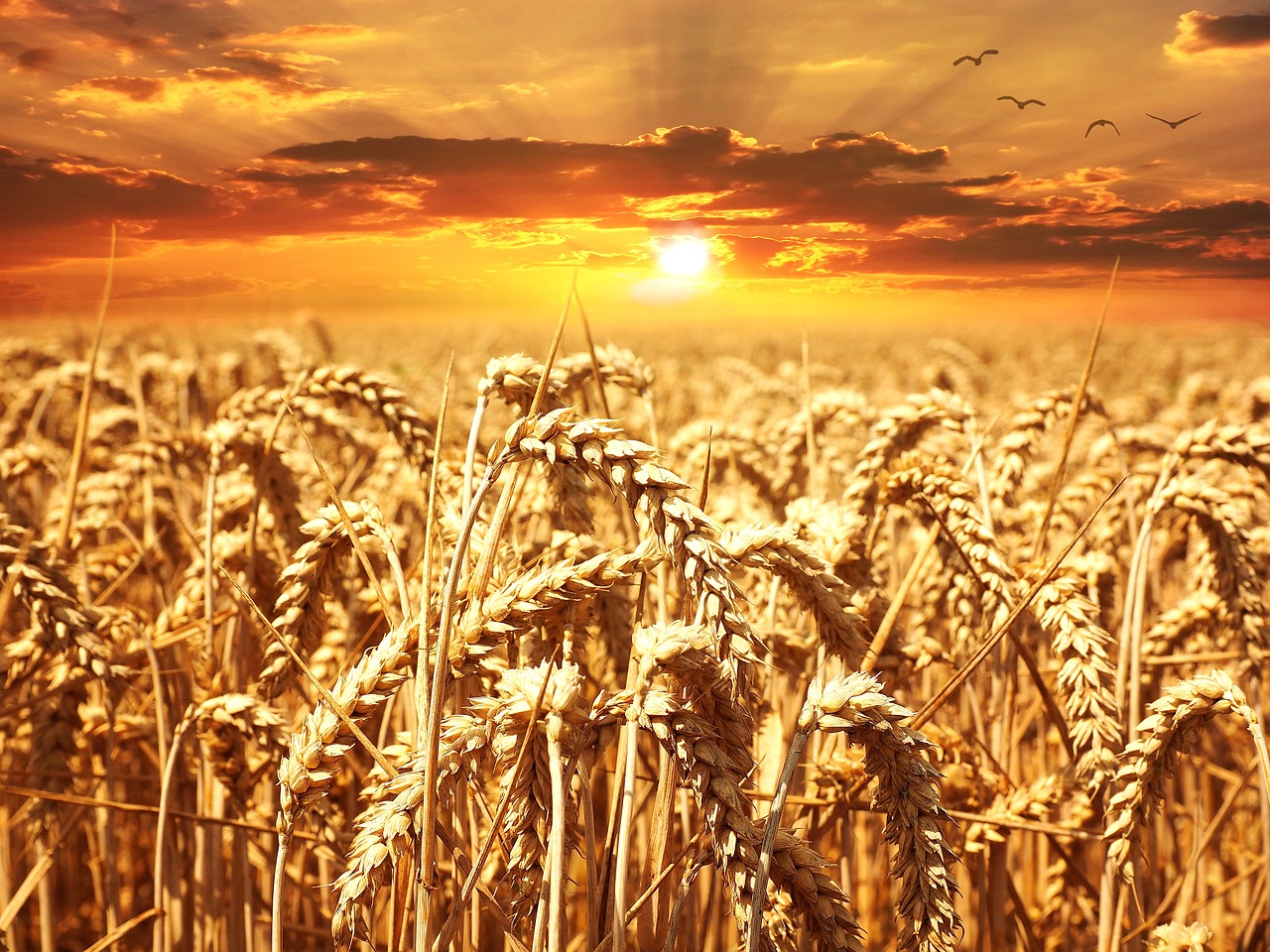As the sun breaks the morning mist over sprawling fields, a dedicated farmer tends to his crops, just as his ancestors did for generations. But, unlike his forefathers, he’s got a new tool on his side – the vast and versatile world of agriculture trade shows. We’re embarking on a journey today, a journey that will take us deep into the future of farming, a future shaped by these vibrant expos and events.
We live in an era where technology and innovation have become the backbone of almost every industry, and farming is no exception. In fact, it’s right there at the forefront, innovating at a breakneck speed, and agriculture trade shows are the pulse that keeps this rhythm going. But how exactly are these events shaping farming as we know it, and more importantly, the future of farming?
As you join us on this fascinating expedition, we’ll unveil the intricate tapestry of today’s agricultural landscape, shaped and transformed by trade shows. We will explore how they provide a platform for farmers, innovators, and entrepreneurs to exchange ideas, showcase breakthroughs, and nurture connections. With each step, we’ll see how the face of farming is changing – not in some distant future, but here and now, as we speak. We’re not just observers on this journey; we’re participants, exploring, learning, and growing together.
Buckle up as we dive into this world, illuminating the impact of agriculture trade shows, and how they are pivotal to the ever-evolving future of farming. There’s much to uncover, so let’s dive right in.
A Confluence of Ideas and Innovations
Agriculture trade shows, at their very core, serve as a melting pot of ideas and innovations. Picture this: you walk into an expo, and the first thing you see is a crowd around a brand-new tractor model. The manufacturer demonstrates its state-of-the-art features, such as GPS-guided steering and IoT-powered diagnostics. This isn’t a scene from a sci-fi movie; it’s reality, playing out at farming expos worldwide.
You and I know how rapidly technology evolves. A smartphone today can do things that a computer, merely a decade ago, couldn’t. Similarly, the farm equipment we see today was unthinkable just a few years back. Agriculture trade shows have become the runway for these groundbreaking technologies. Farmers, entrepreneurs, innovators, and scientists gather at these events to share, collaborate, and inspire.
Remember the first time you saw a 3D printer? It was like magic, wasn’t it? Today, they’re used in a range of fields, including agriculture. At a trade show, you might come across 3D-printed equipment parts, bespoke to the individual needs of farmers. You may find prototypes of drones designed for precision farming, or even something as futuristic as robotic farming assistants. Each booth, and each presentation at these expos, hints at the future of farming.
But it’s not all about the shiny, new toys. What truly makes these trade shows so valuable is the exchange of ideas. In one hall, you might find a farmer from Nebraska discussing soil health with a scientist from Brazil. In another, an entrepreneur from India could be sharing her unique irrigation solution with farmers from arid regions of Africa. These interactions, these exchanges of knowledge, sow the seeds of future innovations.
When we talk about the future of farming, technology will undoubtedly play a key role. However, it’s the human connections and the collective wisdom of diverse minds, that will truly drive this future. Agriculture trade shows are the platforms where these connections are made and nurtured, where problems are shared, solutions are found, and the future is shaped, one idea at a time.
A Spotlight on Sustainable Practices
The second key aspect of the future of farming that agriculture trade shows illuminate is sustainability. Sustainability is not merely a buzzword. It’s the need of the hour. As farmers, we’re not just tilling the soil and growing crops; we’re custodians of the land for future generations. Sustainability is a commitment to ensuring our farming practices respect this responsibility.
Trade shows have become a focal point for showcasing sustainable practices and technologies. These events provide a platform where farmers can share their sustainable farming practices with others. For instance, a farmer who has successfully adopted organic farming methods can demonstrate their techniques, share their experiences, and inspire other farmers to follow suit.
From soil regeneration methods to water conservation technologies, from crop rotation practices to organic pest control, these trade shows cover every facet of sustainable farming. They highlight not just why sustainability is important, but how we can implement it. These expos provide practical, hands-on knowledge that farmers can take back to their fields.
Moreover, many of these shows host sessions on climate change and its impact on farming. Experts share insights on how to make our farms more resilient to changing weather patterns and extreme weather events. They also highlight how sustainable farming practices can contribute to mitigating climate change by reducing greenhouse gas emissions.
However, sustainable farming is not just about protecting the environment. It’s about ensuring the economic viability of farms as well. Trade shows are places where farmers can learn about value-added products, direct marketing strategies, and other ways to improve their farm’s profitability while staying true to sustainable principles.
In essence, trade shows are playing a critical role in shaping the future of farming by promoting sustainability. They’re showing us that we can farm in a way that nourishes the earth, provides healthy food for consumers, and ensures a decent living for farmers.
Education and Skill Development: Empowering the New Age Farmer
Education and skill development form the third critical pillar in understanding the future of farming through the lens of agriculture trade shows. Farming, like any other profession, requires constant learning and skill enhancement. With the landscape of agriculture continually evolving, farmers need to stay abreast of new techniques, technologies, and best practices. This is where the agriculture trade shows a step in.
Think of these trade shows as massive, interactive classrooms. They are filled with workshops, seminars, and demonstrations that provide practical education to farmers. Whether it’s a session on how to use a new type of irrigation system, or a workshop on crop disease management, or a seminar on leveraging technology for efficient farming, there’s a wealth of knowledge available at these events.
These sessions are often led by experts in the field – scientists, experienced farmers, agri-business professionals, and even government representatives. They provide farmers with not only the theoretical knowledge but also the practical skills to implement this knowledge. It’s one thing to read about a new farming technique; it’s another to see it demonstrated live, to be able to ask questions and to understand the nuances.
Furthermore, agriculture trade shows also provide young people interested in farming a window into the profession. Through these events, they can see the exciting developments in the sector, meet professionals, and learn about various career paths in agriculture. In a way, these trade shows are helping to shape the next generation of farmers.
But it’s not just the formal sessions and workshops. The informal conversations, the chance meetings, the shared meals – these are equally educational. Farmers learn from each other, share experiences, and gain insights from peers facing similar challenges.
In essence, education and skill development are at the heart of these trade shows. They empower farmers with the knowledge and skills to navigate the future of farming confidently. As we look at the changing face of farming, the educated and skilled farmer will be at the forefront, driving this change.
Bridging the Gap between Producers and Consumers
In the modern era of farming, we are witnessing a remarkable trend where agriculture trade shows are helping to bridge the gap between us – the producers, and them – the consumers. This is a critical shift that is shaping the future of farming and how we perceive our role in it.
Let’s take a moment to think about why this is important. Over the past few decades, the connection between those who grow food and those who consume it has become increasingly distant. As a farmer, you might feel that your hard work, your commitment to the land, and the quality of your produce is invisible to the consumer at the supermarket.
Now, this is where agriculture trade shows can make a profound difference. They create a forum where you, the farmer, can interact directly with consumers. It’s an opportunity for us to showcase our farm’s produce, explain the care we put into growing it, and highlight the quality that sets it apart. It’s a chance to tell our farm’s story, and in doing so, reconnect with those who enjoy the fruits of our labor.
Furthermore, we can use these events to educate consumers about farming. When consumers understand the challenges we face, the choices we make, and the passion we pour into our work, they are more likely to appreciate the value of our produce. They may be more inclined to choose locally grown food, organic produce, or fair-trade products.
We also stand to gain from this direct interaction with consumers. We can better understand their needs, their preferences, and their concerns. This knowledge can guide us in making decisions about what crops to grow, what farming practices to adopt, and how to market our produce.
In essence, agriculture trade shows are helping to restore the lost connection between the farm and the table. They are fostering a dialogue between producers and consumers, a dialogue that is integral to the future of farming.
Encouraging Entrepreneurship and Innovation in Agriculture
As we journey through the universe of agriculture trade shows, one compelling aspect that we stumble upon is the stimulation of entrepreneurship and innovation. As you and I both understand, farming is not just about working in the fields anymore. It is about creative problem-solving, finding better ways to do things, and taking calculated risks. This is what makes an entrepreneur, isn’t it?
In the hustle and bustle of these expos, we find numerous entrepreneurial solutions catering to different aspects of farming. From startups offering precision agriculture technologies to ventures dealing in organic fertilizers, from companies providing farm-to-table supply chain solutions to enterprises dealing in renewable energy for farms – entrepreneurship is flourishing in the realm of agriculture.
Now, you may wonder, why is this important to us as farmers. Here’s why. These entrepreneurial solutions can make our work easier, more efficient, and more profitable. They can help us overcome challenges and seize new opportunities. And the best part is that we get to discover these solutions at the trade shows.
But that’s not all. If you have an innovative idea, a novel solution to a farming problem, or a unique product, these trade shows can be your stepping stone to becoming an agripreneur. They provide us with the platform to showcase our innovations, attract potential investors, and network with industry experts.
It’s not just about the financial aspects either. It’s about the thrill of solving problems, the satisfaction of making a difference, and the pride in shaping the future of farming. I believe every farmer has an entrepreneur inside them, waiting to sprout. Agriculture trade shows can water this seed of entrepreneurship, helping it grow and thrive.
So, in essence, these trade shows are not just about embracing entrepreneurial solutions. They are about fostering a culture of innovation and entrepreneurship within us, the farming community. It’s this entrepreneurial spirit that will drive the future of farming, making it more resilient, more sustainable, and more prosperous.
Promoting Global Collaboration in Agriculture
As we navigate the course of agriculture trade shows, we discover another key element shaping the future of farming: global collaboration. In our interconnected world, the challenges we face in farming – climate change, food security, and resource management – transcend borders. They demand a collective response, and agriculture trade shows provide a platform for this global collaboration.
Imagine walking into a trade show. On your left, you might see a rice farmer from Japan demonstrating a technique to increase yield. On your right, there could be a scientist from Israel presenting an innovative irrigation technology. Straight ahead, you might find a coffee grower from Colombia sharing organic pest management strategies. It’s a global village of farmers and agricultural professionals, coming together to share knowledge and collaborate on solutions.
As a farmer, you and I both understand the value of learning from others’ experiences. A technique that worked in Australia might be the answer to a problem we’ve been grappling with in the U.S. A variety of rice that thrives in the monsoons of India might do well in the wetlands of Florida. An innovation developed in the Netherlands could revolutionize how we manage our water resources.
Moreover, these trade shows enable us to share our experiences, our knowledge, and our innovations with the world. They provide us with a platform to showcase our successes, learn from our failures, and contribute to the global discourse on the future of farming.
The collaborations fostered at these events go beyond knowledge sharing. They lead to partnerships, joint ventures, and international projects that drive progress in agriculture. They enable us to pool our resources, our expertise, and our creativity to tackle the biggest challenges in farming.
In essence, agriculture trade shows are helping to build a global community of farmers and agri-professionals, united by a common purpose: to create a sustainable, prosperous, and resilient future for farming. Through these events, we are not just witnessing the changing face of farming, but actively shaping it, together.
Championing Women in Agriculture
Another critical facet of the future of farming that comes to light at agriculture trade shows is the increasing recognition of women’s role in agriculture. I’m sure you and I both know many women who work tirelessly on their farms, contributing significantly to our food production. Yet, for far too long, their contributions have been overlooked, their voices unheard. Thankfully, this narrative is changing, and agriculture trade shows play a pivotal role in this shift.
Trade shows offer a platform for women in agriculture to share their experiences, challenges, and triumphs. They provide us with an opportunity to learn from these hard-working women, to appreciate their unique perspectives, and to understand their specific needs. Whether it’s a seminar led by a successful woman farmer, a panel discussion on gender equality in agriculture, or an exhibit showcasing a woman-led agribusiness, women’s presence and impact are increasingly visible at these events.
The empowerment of women in agriculture goes beyond gender equality. It’s about harnessing the untapped potential that women bring to farming. Numerous studies show that empowering women in agriculture can lead to increased farm productivity, improved family nutrition, and enhance overall development. Recognizing and promoting women’s role in agriculture is not just the right thing to do; it’s a smart strategy for sustainable farming.
However, the road to equality is long, and we still have many miles to cover. Challenges such as access to land, credit, and technology; biased social norms; and the burden of unpaid care work continue to limit women’s potential in agriculture. This is where trade shows can make a difference. By shedding light on these issues, advocating for policy changes, and showcasing success stories, they can accelerate progress toward gender equality in farming.
In essence, the increasing visibility of women at agriculture trade shows reflects a broader shift in the farming landscape – a shift towards recognizing and leveraging the critical role of women in agriculture. As we envision the future of farming, women stand as integral architects of this future.
Spotlighting the Intersection of Agriculture and Technology
As we dive deeper into the universe of agriculture trade shows, another remarkable facet that we encounter is the burgeoning relationship between agriculture and technology. As farmers, you and I can attest that farming isn’t the same as it was a decade ago. We have seen technology infiltrate our fields, barns, and farmhouses, altering the way we farm.
Trade shows serve as a bustling hub for agricultural technology or “agtech”. Walking through the expo, you may come across a drone that can monitor crop health, a robot that can pick apples or a smart irrigation system that saves water. It’s a tantalizing glimpse into the future where technology and agriculture intertwine to create more sustainable and productive farming systems.
You might wonder, “Why do I need technology on my farm?” Well, technology has the potential to solve some of the most pressing challenges we face in farming. It can help us grow more food with fewer resources, make our farms more resilient to climate change, reduce labor-intensive tasks, and manage our farms more efficiently.
However, embracing technology isn’t without its challenges. It can be costly, and there’s a learning curve involved. But here’s where trade shows can help. They provide us with a chance to explore various technologies, understand their benefits and drawbacks, and see them in action before we decide to invest.
Moreover, these expos often offer sessions on digital literacy and technical training, helping us to overcome barriers to technology adoption. They create a supportive environment where we can ask questions, share our concerns, and learn from others’ experiences.
In essence, agriculture trade shows are accelerating the fusion of farming and technology. They are helping us, the farming community, to navigate the digital transformation of agriculture and embrace the future of farming with confidence.
Strengthening Local Agriculture Communities
One of the most rewarding aspects of agriculture trade shows that I’ve found—and perhaps you’ll agree—is the way they strengthen local farming communities. In our day-to-day farming lives, we might feel isolated, dealing with challenges alone. But when we attend these expos, we’re reminded that we’re part of a larger community, a community that understands our struggles and shares our aspirations.
Trade shows provide us with a forum to connect with fellow farmers from our region. We can exchange stories, share advice, and learn from each other’s experiences. We may discover that a problem we’ve been grappling with is something another farmer has already solved. Or perhaps our innovative solution to a pest problem might be the answer another farmer has been searching for.
These events also bring together various stakeholders in our local agriculture ecosystem. From suppliers and service providers to buyers and retailers, from researchers and extension agents to policymakers and financial institutions. This diverse mix of participants fosters a sense of shared purpose and promotes collaboration toward improving our local agriculture sector.
Agriculture trade shows also highlight the importance of supporting local farms. They showcase the diversity and quality of local produce, reinforcing the value of buying local among consumers and businesses. And as we know, a strong local market is vital for the viability of our farms.
Moreover, these events serve to reinforce our collective identity as farmers. They remind us that we’re not just individual farmers working on separate fields, but a community united by a common vocation. This sense of belonging, this shared identity, is empowering. It strengthens our resolve to overcome challenges and inspires us to strive for a better future for our farms.
In essence, agriculture trade shows are more than just events. They’re catalysts that invigorate our local farming communities, foster collaboration, and strengthen the local agriculture sector. As we look towards the future of farming, the strength of our local communities will undoubtedly play a pivotal role.
Inspiring the Next Generation of Farmers
Finally, but perhaps most importantly, agriculture trade shows play a crucial role in inspiring the next generation of farmers. As you and I are well aware, farming is more than a profession. It’s a way of life, rooted in passion, commitment, and a deep connection with the land. It’s a legacy that we hope to pass on to the next generation.
Agriculture trade shows provide a fantastic opportunity to introduce young people to the world of farming. Through interactive exhibits, educational workshops, and hands-on experiences, they can discover the joys and challenges of farming. They can see how farming merges with technology, how it contributes to our society, and how it connects with global issues like climate change and food security.
Moreover, these expos showcase a range of career paths in the agriculture sector, beyond just traditional farming. From agricultural science and agribusiness to food processing and agri-tourism, young people can explore a diverse array of opportunities. They can meet role models, hear success stories, and even find mentors who can guide them on their agricultural journey.
You may ask, “Why is this important?” Well, as we look towards the future, one thing is clear. We need passionate, skilled, and innovative individuals to take the reins of our farms and lead the agriculture sector forward. Inspiring the younger generation and nurturing their interest in agriculture is critical to ensuring the sustainability and resilience of our farms.
However, it’s not just about securing the future of farming. It’s about fostering an appreciation for agriculture among our youth. Even if they don’t choose a career in agriculture, the understanding and respect they gain for farming can make them better consumers, responsible citizens, and stewards of our planet.
In essence, agriculture trade shows are playing a vital role in sowing the seeds of farming in the hearts of young people. They’re cultivating the future farmers, agripreneurs, scientists, and leaders who will shape the future of farming.
That concludes our exploration of the ten key ways agriculture trade shows are changing the face of farming. I hope you found this journey enlightening and engaging. As always, I welcome your thoughts, questions, and feedback. After all, it’s through our shared experiences and collective wisdom that we can truly understand and shape the future of farming.
We welcome any suggestions or questions. You can email us or contact us using the contact page.
You can also connect with us on the following social networks:









0 Comments